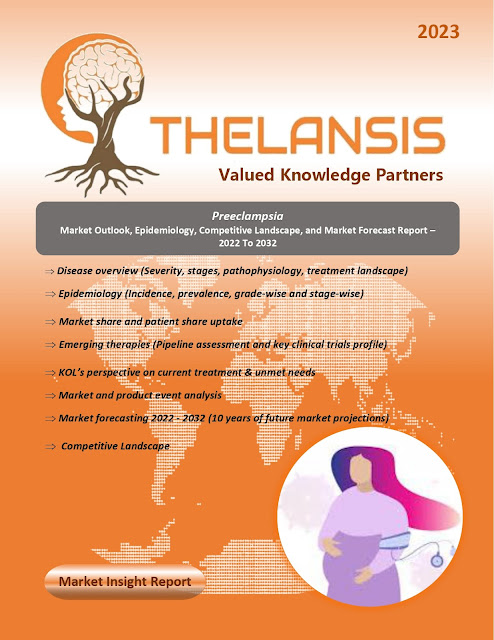Preeclampsia – Market Outlook, Epidemiology, Competitive Landscape, and Market Forecast Report – 2023 To 2033

Preeclampsia is a condition characterized by high blood pressure during pregnancy. The criteria for identifying preeclampsia initially involve a systolic blood pressure of 140 mm Hg or higher or a diastolic blood pressure of 90 mm Hg or higher, recorded on at least two occasions at least 4 hours apart. Alternatively, if the time interval is shorter, the criteria are a systolic blood pressure of 160 mm Hg or higher or a diastolic blood pressure of 110 mm Hg or higher. All of these measurements must be made after 20 weeks of gestation. While there is a comprehensive understanding of how preeclampsia is clinically presented, diagnosed, and managed as part of routine practice, the underlying causes remain unclear. A prevalent explanation for preeclampsia involves abnormal placentation, which triggers significant dysfunction in the mother's body. Despite challenges, abnormal placentation remains a well-supported cause of preeclampsia, leading to unusual remodeling of spiral arteries...
